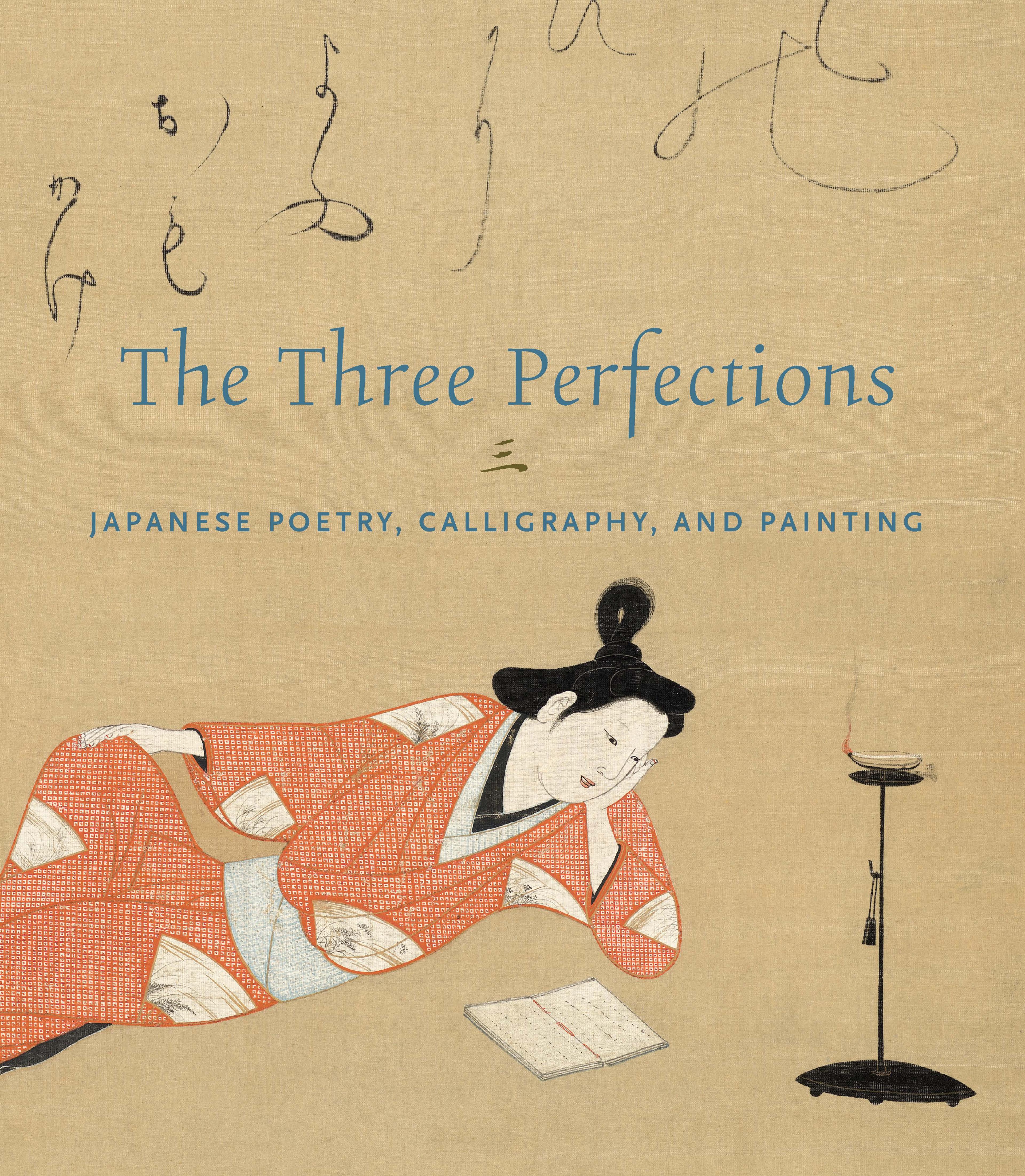Record of a haiku exchange on kaishi writing paper
This sheet of kaishi writing paper is inscribed with verse by Japan’s most famous haiku poet, Matsuo Bashō, and one of his pupils in the teacher’s own handwriting. When this work was first publically displayed at Seattle Asian Art Museum in 2015, it created a small sensation among literary specialists in Japan because not only were the Bashō poems recorded here previously unknown, the work must date to relatively early in his career as a poet, before he turned forty. In the West, it would be the equivalent of discovering a manuscript with previously unpublished poems by (Bashō’s contemporary) John Milton in his own hand. At the time of the discovery, the Bashō expert Professor Tamaki Tsukasa stated that the handwriting, seal, and signature could also be authenticated as genuine, keeping in mind that forgeries of Bashō manuscripts abound (for instance, The Met has one in its collection).
The document records the exchange of poems with Sugiki Shōei (Fusai, 1628–1706)), a master of wabicha tea ceremony and haikai poet. A record of an exchange of poetic sentiments such as this, interwoven with allusions to Buddhist enlightenment, tea, sake, and a humble dwelling, inscribed by the master Bashō in his distinctive, idiosyncratic handwriting would have been preserved as a tea hanging. The exchange reads as follows:
The man of leisure
clutches my sleeve—
What is it? Haiku.
—Shōei
My first move toward
enlightenment: Answering
the rain falling on the plantains.
I broke off
a Rose of Sharon as a garnish
for my sake cup.
—Bashō
The hut is sparsely furnished, and storms have broken the walls, rain has soaked the tatami mats. Outside the window, the plants do as they please, and the trees do not correct their bends.
The householder I admire
dwells in a forlorn shack
amid the vines of ivy.
—Bashō
I think I will pick some
to boil water for tea:
stems of bush clover.
—Shōei
(Translations by Paul Atkins from labels at the Seattle Asian Art Museum, 2015)
The document records the exchange of poems with Sugiki Shōei (Fusai, 1628–1706)), a master of wabicha tea ceremony and haikai poet. A record of an exchange of poetic sentiments such as this, interwoven with allusions to Buddhist enlightenment, tea, sake, and a humble dwelling, inscribed by the master Bashō in his distinctive, idiosyncratic handwriting would have been preserved as a tea hanging. The exchange reads as follows:
The man of leisure
clutches my sleeve—
What is it? Haiku.
—Shōei
My first move toward
enlightenment: Answering
the rain falling on the plantains.
I broke off
a Rose of Sharon as a garnish
for my sake cup.
—Bashō
The hut is sparsely furnished, and storms have broken the walls, rain has soaked the tatami mats. Outside the window, the plants do as they please, and the trees do not correct their bends.
The householder I admire
dwells in a forlorn shack
amid the vines of ivy.
—Bashō
I think I will pick some
to boil water for tea:
stems of bush clover.
—Shōei
(Translations by Paul Atkins from labels at the Seattle Asian Art Museum, 2015)
Artwork Details
- 松尾芭蕉書 句懐紙
- Title:Record of a haiku exchange on kaishi writing paper
- Artist:Matsuo Bashō (Japanese, 1644–1694)
- Period:Edo period (1615–1868)
- Date:second half of the 17th century
- Culture:Japan
- Medium:Hanging scroll; ink on paper
- Dimensions:Image: 11 5/16 × 18 3/8 in. (28.7 × 46.7 cm)
Overall with mounting: 44 7/8 × 19 1/4 in. (114 × 48.9 cm)
Overall with knobs: 44 7/8 × 21 1/4 in. (114 × 54 cm) - Classification:Calligraphy
- Credit Line:Mary and Cheney Cowles Collection, Gift of Mary and Cheney Cowles, 2018
- Object Number:2018.853.20
- Curatorial Department: Asian Art
More Artwork
Research Resources
The Met provides unparalleled resources for research and welcomes an international community of students and scholars. The Met's Open Access API is where creators and researchers can connect to the The Met collection. Open Access data and public domain images are available for unrestricted commercial and noncommercial use without permission or fee.
To request images under copyright and other restrictions, please use this Image Request form.
Feedback
We continue to research and examine historical and cultural context for objects in The Met collection. If you have comments or questions about this object record, please contact us using the form below. The Museum looks forward to receiving your comments.
